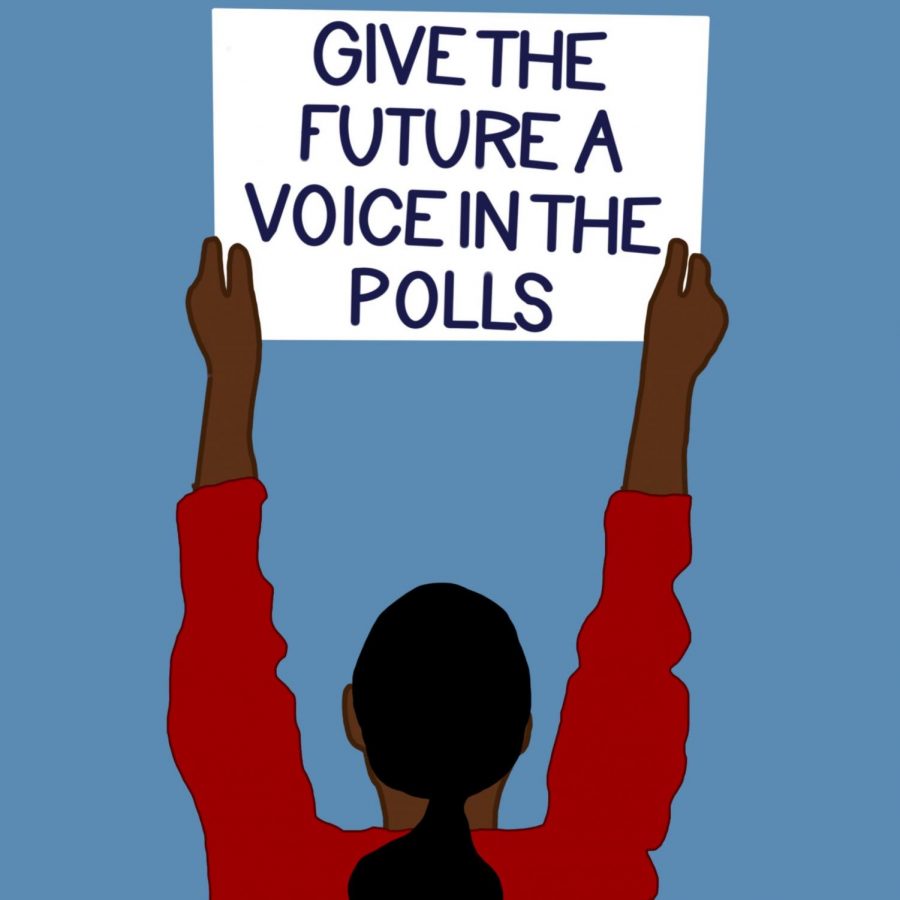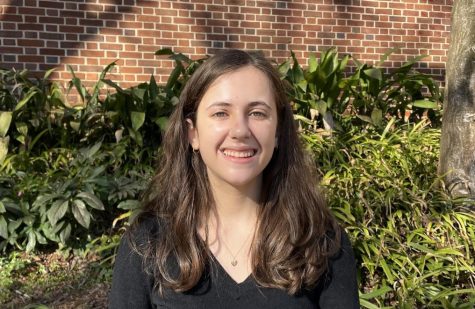Youth voters need to vote for every election
While youth voters are at the forefront of at of protests and political revolutions it’s time for them to bring that energy to the polls.
September 16, 2020
It is common knowledge that young voters are the smallest portion of voters (only 46 percent showing up to the last presidential election polls), a pattern that has been reiterated from generation to generation. More often than not their spots and attendance are overtaken by older generations, who have the power to reshape the political landscape of America in seconds. Older voters might not be living for much longer, but their consequences will radiate generations after in youth voters, especially in terms of the presidential election.
Kei Kawashima-Ginsberg, director of Tufts University’s Center for Research on Civic Learning and Engagement, suggests that youth voters in the 2016 presidential election were largely dissuaded from voting because they believed the major political parties weren’t promoting their views. The disconnect between younger people and partisan politics can be solved, in part, by a greater influx of young voters at the polls, where they can vote out older representatives who do not represent their ideals.
Complacency, in any election, is unacceptable. The aftermath of 2016 has shown that voting isn’t just a “civic duty,” but a moral obligation that not only determines your future, but the future of others as well. The BBC finds that youth voters most often go to the polls when they feel that their vote will make a tangible difference in the result of the election. After all, why vote if you feel like your vote doesn’t count? Youth voters are often stuck between feeling intimidated by their vote not counting alongside frustration that they don’t feel like they’re being represented. But voting isn’t just about getting your vote to count, it’s helping others’ votes count as well. Your one vote might not change the result of an entire electoral race, but your vote in conjunction with the votes of others will.
If youth voters want the representation they so desperately desire, they will have no choice but to go out to the polls this November and every election following it. One presidential election will not be enough to rebuild a brighter world in the youth’s vision, but it is a start. Grassroot changes that influence your community and the neighborhoods you live in everyday aren’t influenced by the presidential election or the midterms; they happen at your state and local primaries.
While young people predominantly make up organizations that are actively volunteering in campaigns and amplifying voter registration and clarity, it isn’t enough anymore. Despite, all the efforts made by various Grady clubs and students at Grady consistently making an effort to have their voices heard, we need to do more. We need to vote. The 2016 election shows that voting isn’t optional anymore. It has the potential to permanently alter society as we know it. Volunteering your time isn’t enough anymore. It is time to volunteer your vote.
It’s time for youth voters to start reconsidering their viewpoints on voting.. It’s not just about us anymore, it’s about the broader world we work to sustain and improve. You won’t know if your vote counts or not unless you go out and vote. Voting may be a tedious step, but in the grand scheme, it is fundamental to making sure your voice and the voices of your community are heard. It is time for this next generation to take and stand vote out in huge numbers. Young people don’t vote, but why don’t we see what happens if we do? At the end of the day, it won’t be your senator who is judging you and in a court of law, it will be the judges and district attorneys you elect.







